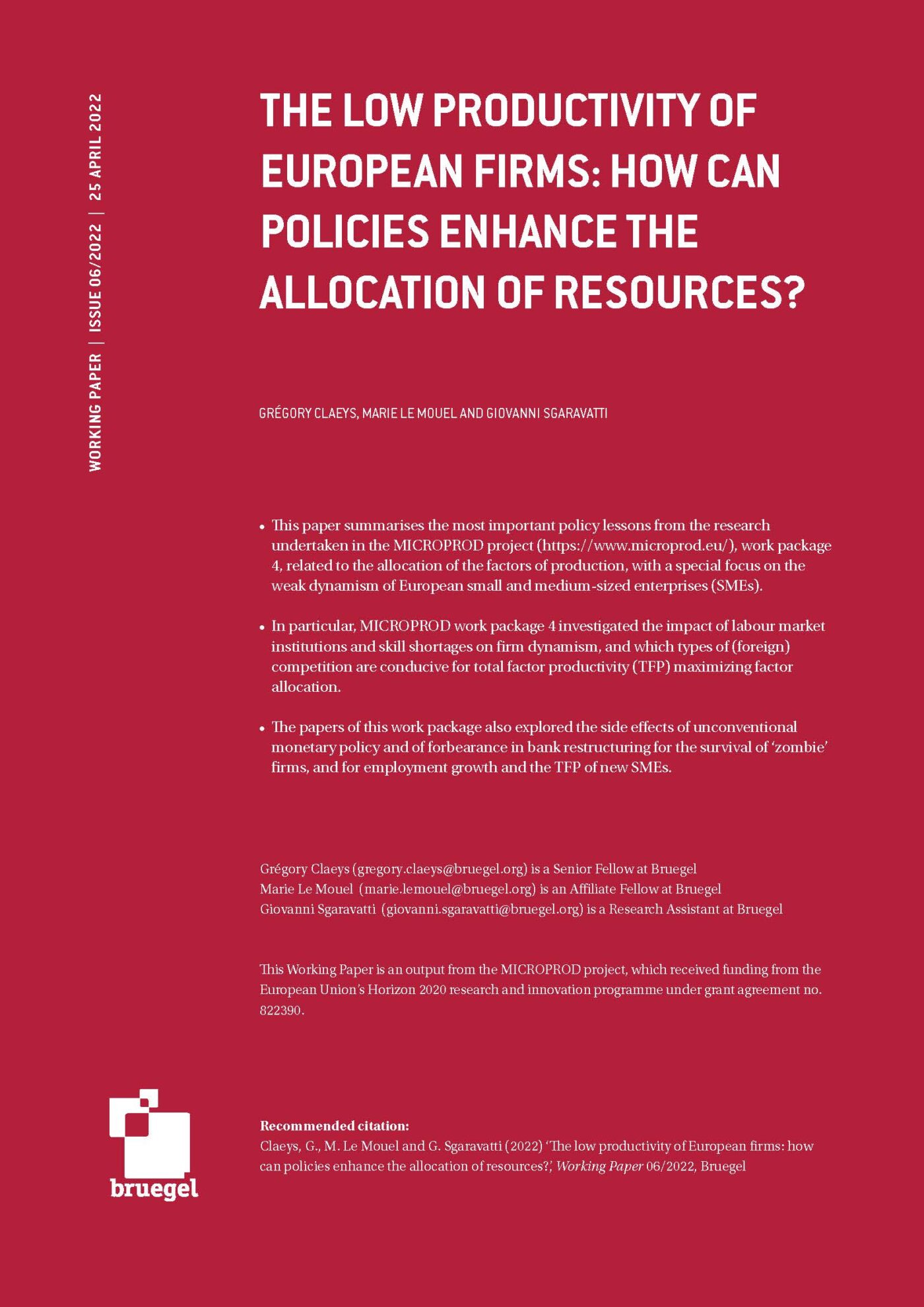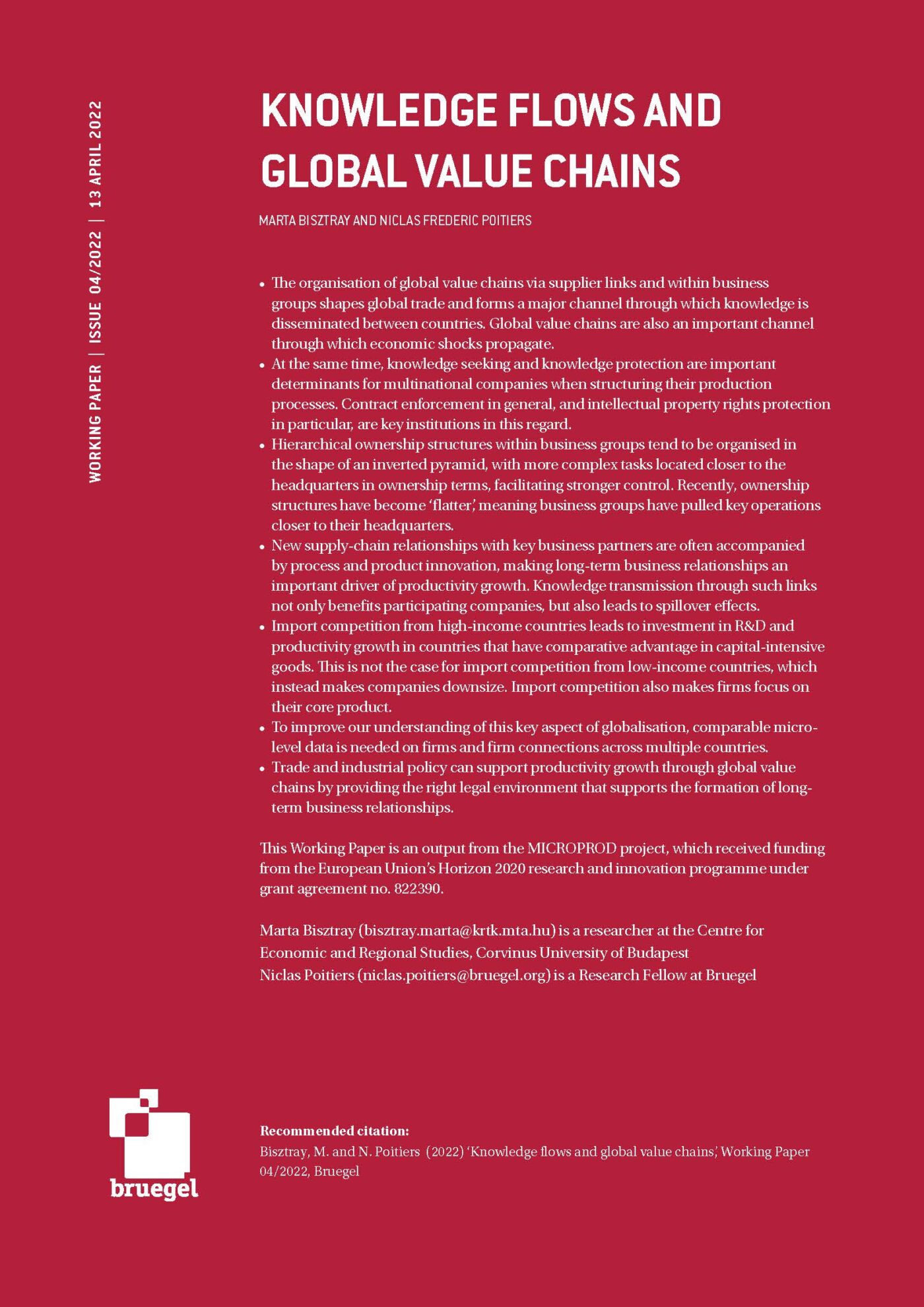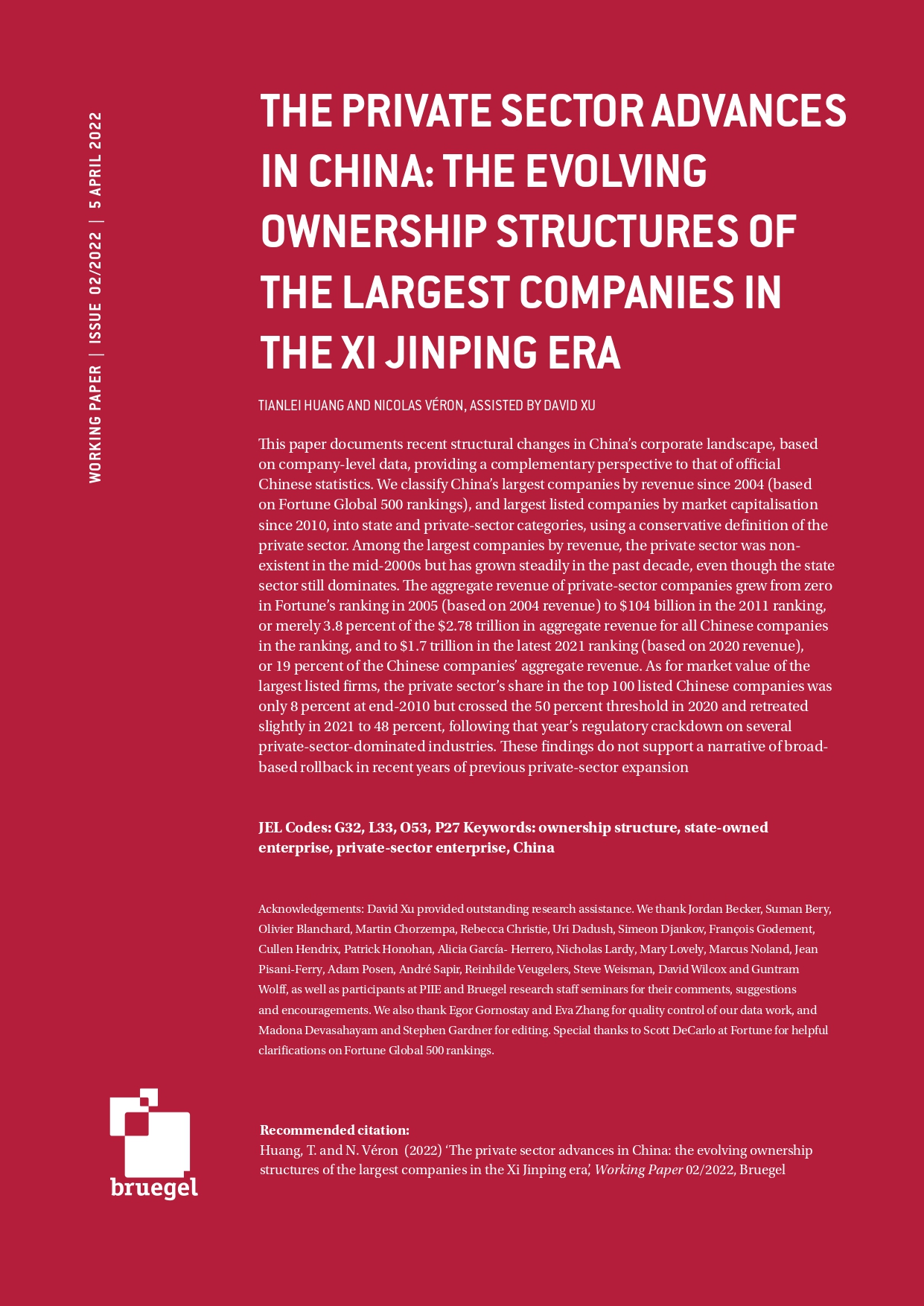Past Event

Green public investment after COVID-19
How can the public sector meet the climate funding needs of the EU?
Past Event

How can the public sector meet the climate funding needs of the EU?
Past Event

China's Belt and Road Initiative is undergoing a transformation after two years of pandemic. How is it changing and what are the consequences for Europe.
Blog Post


Crucial decisions about whether a country can join the euro area depend on questionable discretionary decisions.
External Publication



The ECB should design a specific tool that will accompany interest rate hikes to neutralise the risk of fragmentation directly for countries facing it, staying within the bounds of the EU treaties and ensuring political legitimacy. We also advocate structural changes to the ECB’s collateral framework to avoid unnecessary uncertainty surrounding the safe asset status of European sovereign bonds.
Opinion


Even though inflation in the euro area is lower than in the US, three issues make it a lot more difficult for the ECB to control inflation and preserve financial stability. Once again, the limits of EMU architecture are visible and will require a rethink.
Podcast
What are the implications of prolonged inflation?
Past Event

ECB Executive Board Member Philip Lane discusses the outlook for Euro area economies.
Blog Post

To keep European Union capital markets open and integrated, new international standards should be reflected in future European law and accounting practice to provide further incentives for a reallocation of capital, reflecting in particular climate risks.
Working Paper

A summary of the most important policy lessons from research undertaken in the MICROPROD project work package 4, related to the allocation of the factors of production, with a special focus on the weak dynamism of European small and medium-sized enterprises (SMEs).
Working Paper

Trade and industrial policy can support productivity growth through global value chains by providing the right legal environment that supports the formation of longterm business relationships.
Blog Post


Though private ownership does not free companies from the pervasive influence of the Communist Party, China’s private and state sectors are not equivalent; China’s largest firms are growing faster than their state-owned counterparts.
Working Paper

This paper documents recent structural changes in China’s corporate landscape, based on company level data, providing a complementary perspective to that of official Chinese statistics.